Live on the homepage now!
Reader Supported News
A permanent member of the Security Council invaded Ukraine. The free world needs to fight back.
Among the casualties of Russia’s war on Ukraine has been the postwar system of global order and security. Russia has done everything that the international security institutions were created to prevent. How can the United Nations Security Council, on which Moscow has a permanent seat, live up to its mission to maintain peace? What kind of security and cooperation is possible on the Continent when one participating state of the Organization for Cooperation and Security in Europe has attacked another and killed thousands of civilians? These organizations have failed. Like the League of Nations before them, they must be replaced by a new and more effective set of international institutions capable of serving the interests of all countries, not only those of the great powers.
The architecture of this new system should be based on Ukraine’s experience. In 1994 we gave up the world’s third-largest nuclear arsenal, hoping that the signatures of world leaders on a document meant something. But in April 2008, Germany and France blocked Ukraine’s accession to the North Atlantic Treaty Organization. The Kremlin got the message. In August 2008 Russia invaded Georgia and the world turned a blind eye. In 2014 Russia attacked Ukraine and the world decided not to intervene. Now Russian bombs are erasing our cities from the earth and the world has been unable to stop it.
All this could have been prevented. Had the West imposed preventive sanctions on Russia and provided Kyiv with a sufficient number of defensive weapons—primarily air and missile defense systems—tens of thousands of Ukrainians would still be alive today.
The Western response to the invasion has been too slow. As President Volodymyr Zelensky has said, the global response to a crisis of this sort should be immediate, within 24 hours, not after weeks or months. Any aggressor must face irreversible punishment through a mechanism of preventive measures—so called deferred sanctions that can be approved in peacetime and take effect automatically.
Russia’s aggression against Ukraine has created almost four million refugees. We are on the brink of a global food crisis that could destabilize Africa and the Middle East. Until Russia is stopped, the crisis will only grow, pulling in neighbors and contributing to the collapse of economies.
We always hear the echoes of the past in the present. I’ve never liked traitors or cockroaches. Even when I was a child, both filled me with disgust. Eventually I came to terms with cockroaches and no longer take offense at their existence, but my feelings for traitors haven’t changed. This is the core of who I am, and of many people around me these days. You can’t go back on your word. You can’t run when your country needs you. You can’t betray your friends.
I make dozens of calls every day, communicating with friends and colleagues from different countries. I really want to believe that everyone I speak with has values that they won’t betray under any circumstances. If you consider friendship one of those values, and you consider yourself a friend of Ukraine, please realize that time is running out. We need your help, and we need it now.
Primarily we need heavy weapons to defend and liberate Russian-occupied territories. I know that these weapons can be sourced quickly from different countries. All that’s needed is the will to do so. If you give us these weapons, you will show the world that you are not afraid to confront evil. We also need a total global embargo on Russian oil and gas. We need real sanctions against Russia’s banking system and trade.
If you give us all this, Russian invaders will be gone from Ukraine in a few months. If you don’t, the war will drag on, and the terrorist state of the Russian Federation will destroy the reputations of global leaders and encourage other rogues to test their strength. The flames of the war can spread to other countries at any moment because
Vladimir Putin won’t stop in Ukraine.
A Ukrainian victory is the only outcome that will force Russia to rethink its strategy of aggression. We can do it. We have already proved our bravery. We just need the tools. Once the job is done we can get down to the important business of building a new world security architecture free from the structural defects of the past.
Oleksii Reznikov is the Defense Minister of Ukraine.
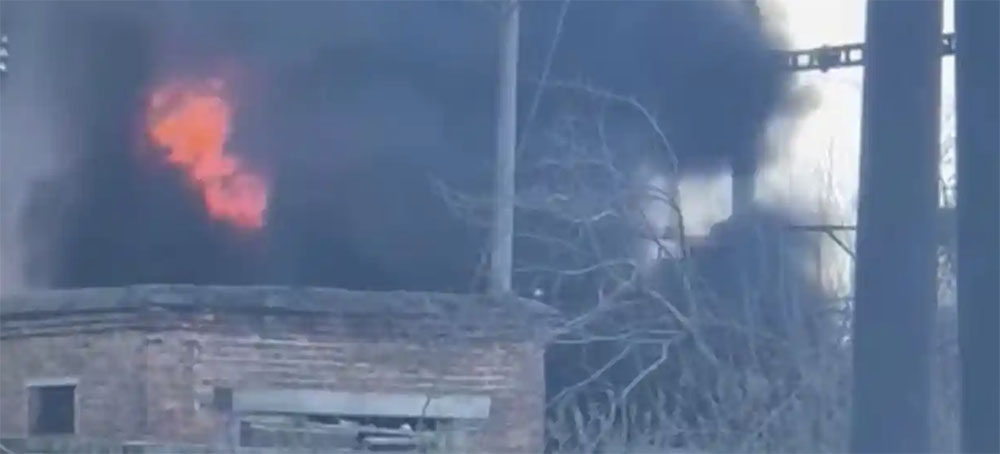 A train station in Krasne, near Lviv in western Ukraine, was reportedly hit by an airstrike at about 8.30am on Monday. (photo: Maksym Kozytskyy/Reuters)
A train station in Krasne, near Lviv in western Ukraine, was reportedly hit by an airstrike at about 8.30am on Monday. (photo: Maksym Kozytskyy/Reuters)
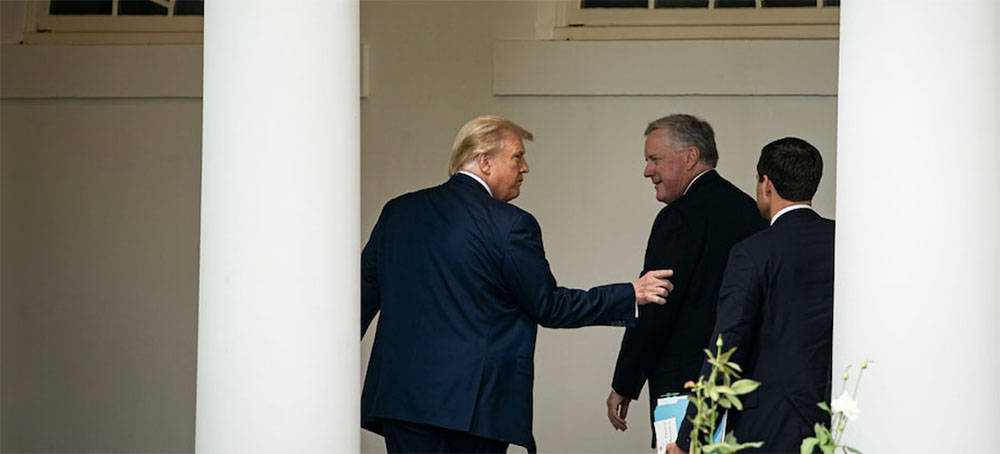 President Donald Trump with White House Chief of Staff Mark Meadows and John McEntee, the White House director of presidential personnel, in September 2020. (photo: Al Drago/AP)
President Donald Trump with White House Chief of Staff Mark Meadows and John McEntee, the White House director of presidential personnel, in September 2020. (photo: Al Drago/AP)
- Knew that their actions were illegal, and …
- Pressed forward with a plan to interfere with Congress’s actions that day?
A judge last month suggested that the evidence on these counts was compelling enough to rule that President Donald Trump probably committed a crime. And now the committee responsible for gathering that evidence is detailing more of it.
In a 248-page filing in the legal battle over former White House chief of staff Mark Meadows’s potential testimony, the committee offers new details of testimony from his aide Cassidy Hutchinson.
On the first count, Hutchinson confirmed that the White House Counsel’s Office repeatedly told those plotting to overturn the election that their plan to use alternate slates of electors — or go even further — was not legally sound. Despite this, Meadows and others pressed forward with their attempts to overturn the election and with the Jan. 6 rally.
On the second count — the idea that this could interfere with Congress’s duties — Hutchinson said Meadows was directly warned about the prospect of violence that day. She said Anthony Ornato, a senior Secret Service agent and political adviser to the White House, discussed the subject with him in early January.
“I just remember Mr. Ornato coming in and saying that we had intel reports saying that there could be violence on the 6th,” Hutchinson said. “And Mr. Meadows said: All right. Let’s talk about it.”
Hutchinson suggested that Ornato had made a point to bring up the subject: “I believe they went to the office for maybe five minutes. It was very quick. Mr. Ornato had stopped him as he was walking out one night to talk about this.”
Separately, Hutchinson detailed the multiple instances in which the White House Counsel’s Office objected legally to the plans to overturn the election on Jan. 6.
According to Hutchinson, the counsel’s office said in some meetings on the subject that it was reviewing the legality of such ideas. But in other meetings — potentially as early as November, more than a month before Jan. 6 — it said the plan was not legally sound.
Emphasis added:
(blockquote)
Q: And so, to be clear, did you hear the White House Counsel’s Office say that this plan to have alternate electors meet and cast votes for Donald Trump in States that he had lost was not legally sound?
HUTCHINSON: Yes, sir.
Q: And do you remember approximately when that was?
HUTCHINSON: I’m trying to not be overly broad, but, right now, sitting here, I can recall at the time, perhaps early to mid- December. Now, it very well could’ve been the end of November, but I’m trying to think about benchmark events and dates in my head, and early to mid- December is the safer bet.
Q: And who was present for that meeting that you remember?
HUTCHINSON: It was in our office. It was Mr. Meadows, Mr. [Rudy] Giuliani, and a few of Mr. Giuliani’s, like — well, I don’t know if the correct term is “associates,” but Mr. Giuliani’s associates.
(end blockquote)
Hutchinson was asked whether this conclusion from the White House Counsel’s Office was also raised in meetings with members of Congress. She said it was. The members she said were present: Reps. Scott Perry (R-Pa.), Matt Gaetz (R-Fla.) and Louie Gohmert (R-Tex.).
The evidence here is piecemeal; the committee didn’t release the full transcript of Hutchinson’s testimony, so some potentially relevant pages are not yet public. Thus, we don’t know what else she said on the subject.
A big question is whether the potential violence Meadows was warned about was linked to those protesting Trump’s loss and whether he was warned that those protesters might turn violent — but didn’t stop the Jan. 6 rally anyway. (At the rally, Trump would urge his supporters to march to the Capitol — while qualifying that they should do so “peacefully.” But Trump’s personal lawyer Rudy Giuliani called for a “trial by combat.”)
As for the White House Counsel’s Office’s legal advice: We had known, based on previous reporting, that the counsel’s office had objected to various efforts to overturn the election and even threatened mass resignations. But Hutchinson’s testimony establishes that the counsel’s office concluded the particular plan pursued by Trump and his allies was not legally sound and that the office informed specific people — people who then pressed forward.
These are both key elements of proving that the effort was criminal. To meet the legal standard for obstructing an official proceeding — the crime the Jan. 6 committee has zeroed in on — you need to prove that the actions obstructed the proceeding and that they were undertaken with corrupt intent (i.e., knowing that what they were doing was wrong).
Indeed, they are two elements that the judge last month suggested Trump’s actions had satisfied.
U.S. District Judge David O. Carter said Trump’s actions appeared corrupt because he “likely knew that the plan to disrupt the electoral count was wrongful.” In Trump’s case, it was both because his allies told him that his allegations of widespread voter fraud were baseless and because the lawyer advising him on the plan, John Eastman, conceded that the plan violated the Electoral Count Act. (Eastman argued that law was simply to be disregarded because it was, in his estimation, unconstitutional.) It would be significant if, layered on top of that, the plotters were informed of the illegality of their plan.
Carter also said Trump urging the Jan. 6 rallygoers to march to the Capitol represented his “galvanizing the crowd to join him in enacting the plan.”
“Together, these actions more likely than not constitute attempts to obstruct an official proceeding,” the judge concluded.
(The Justice Department has used this criminal charge in several cases involving Jan. 6 rioters.)
The new documents also reveal that, despite the White House counsel’s advice and apparently after the office informed him of the prospect of violence, Meadows endorsed one of the most far-flung ideas: having Vice President Mike Pence try to unilaterally reject electors by disregarding the Electoral Count Act.
After Rep. Jim Jordan (R-Ohio) sent him a text about the idea — one Jordan has said he was merely forwarding from someone else — Meadows responded on Jan. 5: “I have pushed for this. Not sure it is going to happen.”
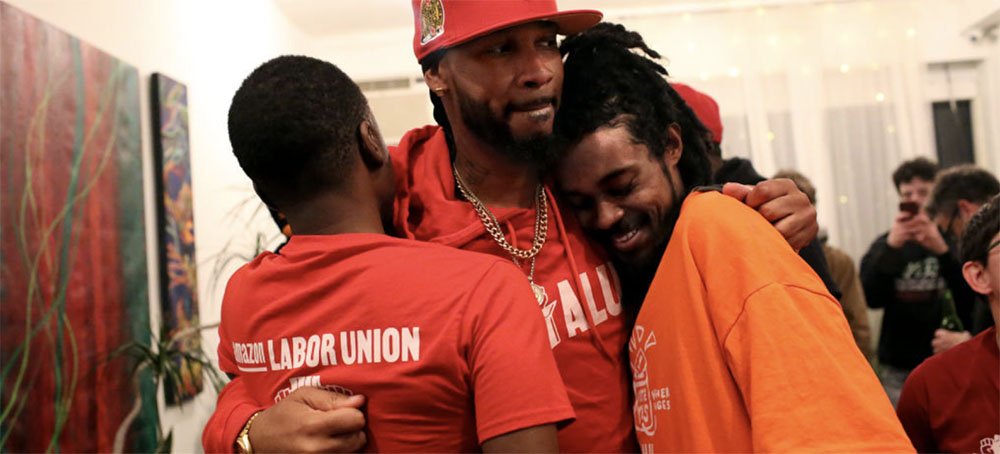 Chris Smalls, founder and president of the Amazon Labor Union, celebrates with workers following their vote to unionize. (photo: Yana Paskova/WP/Getty Images)
Chris Smalls, founder and president of the Amazon Labor Union, celebrates with workers following their vote to unionize. (photo: Yana Paskova/WP/Getty Images)
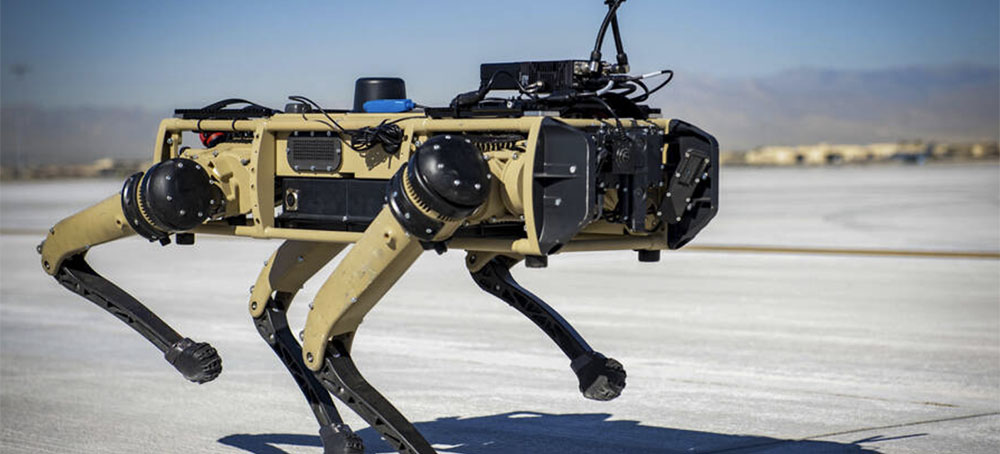 The Vision 60 'robot dog' from Ghost Robotics - seen here in September 2020 during an exercise at Nellis Air Force Base in Nevada - may soon patrol the southern U.S. border. (photo: DoD/Air Force Airman First Class Zachary Rufus)
The Vision 60 'robot dog' from Ghost Robotics - seen here in September 2020 during an exercise at Nellis Air Force Base in Nevada - may soon patrol the southern U.S. border. (photo: DoD/Air Force Airman First Class Zachary Rufus)
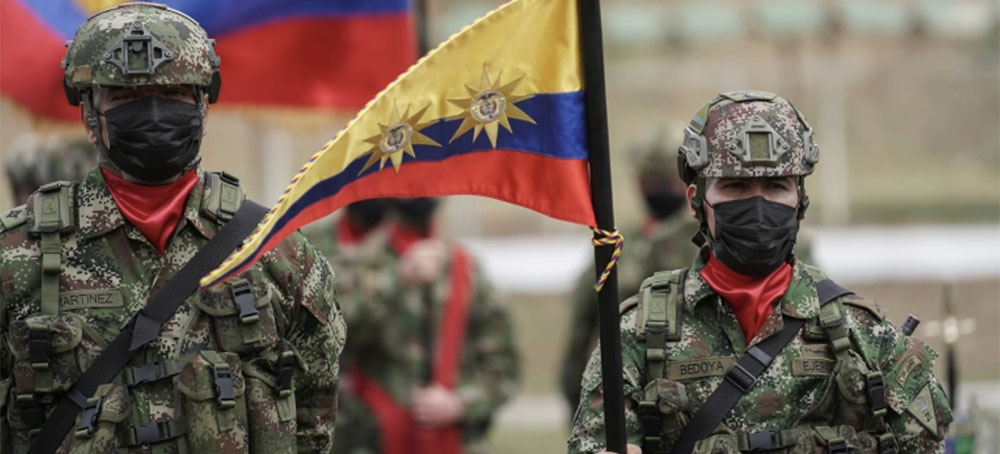 Colombia's military. (photo: Nathalia Angarita/Reuters)
Colombia's military. (photo: Nathalia Angarita/Reuters)
 The first wild-born litter of red wolves since 2018. (photo: Red Wolf Recovery Program/Facebook)
The first wild-born litter of red wolves since 2018. (photo: Red Wolf Recovery Program/Facebook)
Special Coverage: Ukraine, A Historic Resistance
READ MORE
Follow us on facebook and twitter!
PO Box 2043 / Citrus Heights, CA 95611



No comments:
Post a Comment
Note: Only a member of this blog may post a comment.